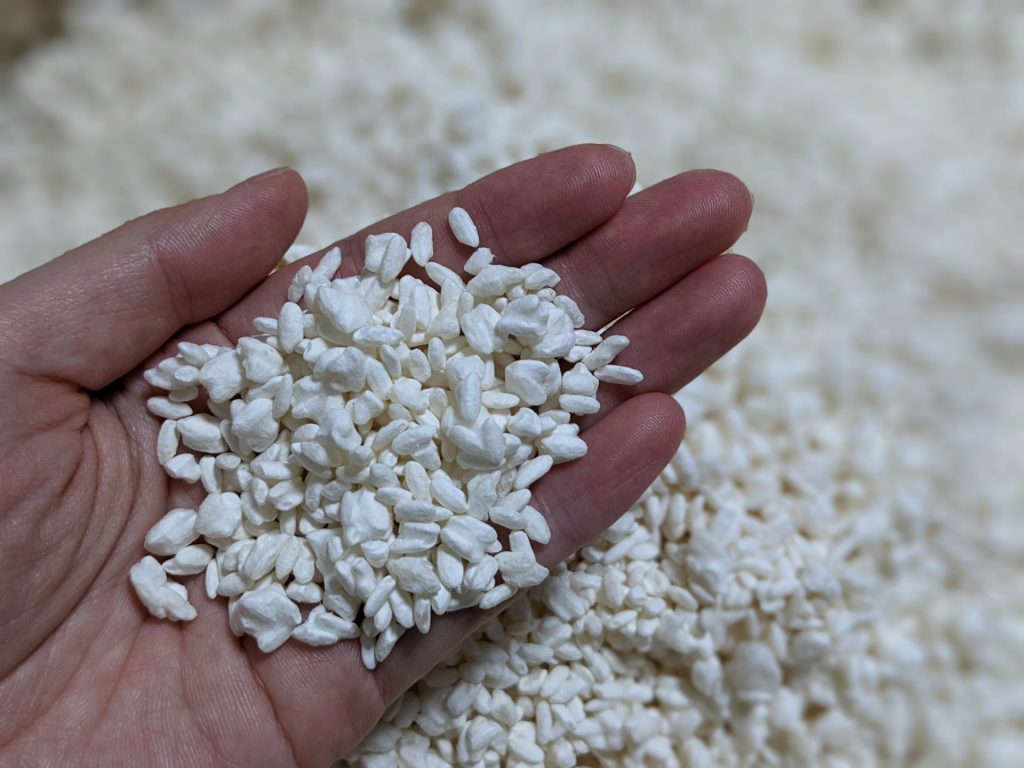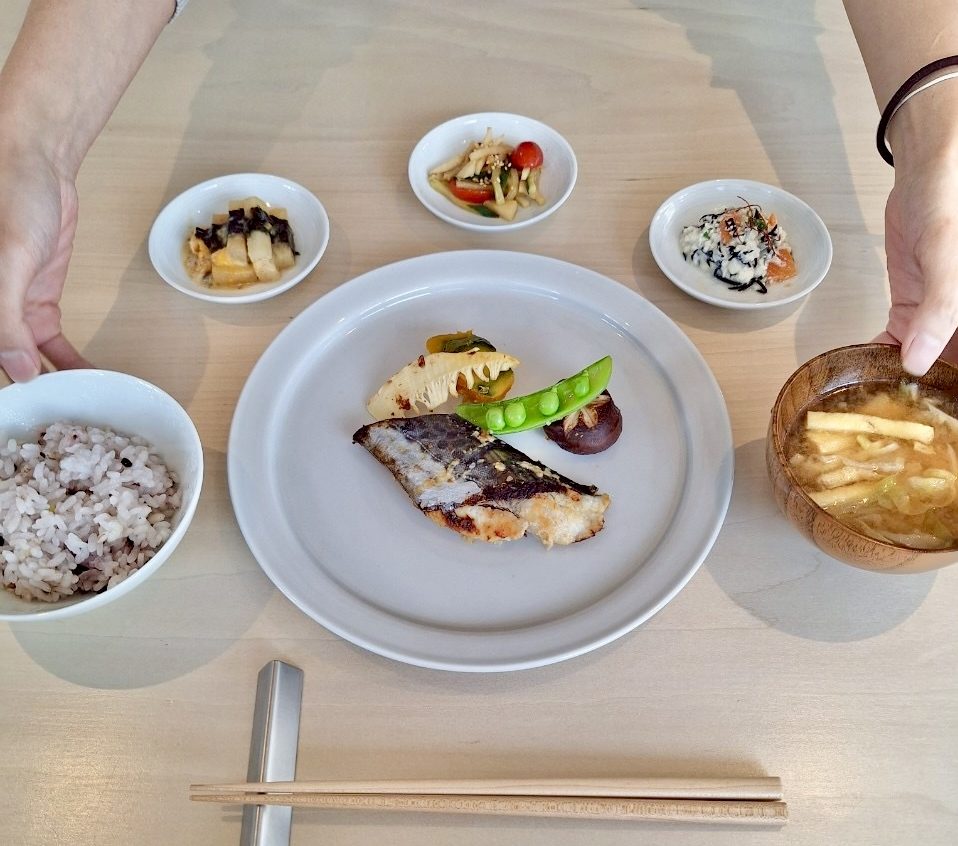
Supervisor: MARIE GOHDA
Registered dietitian, Japanese fermentation and preventive medicine specialist > more imformation
Gut health diet has taken center stage in the world of wellness. From probiotics to plant-based diets, everyone seems to be chasing the elusive goal of a balanced gut microbiome. But did you know that Japan has long maintained a tradition of gut-friendly foods and habits without even calling it a “gut health diet”?
Rooted in centuries-old culinary wisdom, the Japanese lifestyle naturally incorporates fermented foods, mindful eating, and stress-reducing rituals—all of which are proven to support your digestive health. This guide will explore the unique aspects of the Japanese approach to gut health diet, offering insights into how you can adopt these time-tested practices in your own life.
Gut Health 101
Your gut is home to trillions of microorganisms that affect everything from your digestion and immune system to mood and metabolism. This internal ecosystem, known as your gut microbiome, thrives on diversity and balance.
When your microbiome is disrupted—by poor diet, stress, or antibiotics—you may experience bloating, fatigue, or worse. Fortunately, diet and lifestyle are powerful tools to maintain or restore gut harmony.
The Japanese gut health philosophy doesn’t rely on harsh resets or miracle supplements. Instead, it promotes:
- Eating whole, minimally processed foods
- Prioritizing fermented foods and seasonal ingredients
- Incorporating gentle daily routines that reduce stress and support digestion
Want a deep dive into microbiome science? Read the full beginner’s guide to gut health here.
「gut health」記事にリンク
Common Mistakes in a “Healthy” Diet That Actually Harm Your Gut
We all want to eat healthier, but even the best intentions can backfire. Here are some well-meaning but gut-disruptive habits:
Avoiding All Fats
Fats are essential for hormone production and nutrient absorption. Traditional Japanese diets include healthy fats from fermented soy, fish, and sesame oil. Completely eliminating fat can starve your microbiome of what it needs to flourish.
Overusing Protein Powders and Low-Carb Diets
High-protein, low-carb trends often lack fiber and fermented foods. Your gut needs to support beneficial bacteria. Unlike Western protein-heavy meals, Japanese cuisine balances proteins with fiber-rich vegetables and fermented condiments.
Excessive Cleansing or Fasting
While intermittent fasting can have benefits, extreme cleanses may flush out your gut’s good bacteria along with the bad. Instead, the Japanese approach emphasizes daily balance and moderation—like warm miso soup to gently support digestion.
Relying on Sugar-Free or “Health” Snacks
Beware of sugar-free snacks filled with artificial sweeteners, emulsifiers, or preservatives. These compounds can disrupt your gut lining and microbial balance. Natural Japanese snacks like umeboshi or seaweed offer flavor without artificial additives.
Lifestyle Habits: Including Gut Health Diet (In Japan)

Gut health isn’t just about what you eat—it’s also about how you live. Japanese culture offers gentle, sustainable practices to support your microbiome. Let’s look at everyday lifestyle habits that can either support or harm your gut, explained in simple and concrete terms.
What Supports Gut Balance
Let’s begin with habits that promote a thriving gut environment. These practices are simple, practical, and deeply ingrained in Japanese culture:
- Chewing mindfully: Instead of rushing through your meal, chew each bite slowly. This will stimulate your satiety center, making you feel full and naturally regulating the amount of food you eat.
- Daily movement and deep breathing: Regular walking, light stretching, or tai chi encourages the intestines to move smoothly (a process called peristalsis), which prevents bloating and constipation. Deep breathing lowers stress, which helps keep your gut-brain axis in balance.
- Sunlight exposure: A few minutes of natural sunlight each morning helps regulate your internal body clock (circadian rhythm). This rhythm influences everything from sleep quality to gut bacterial activity. Japanese culture often involves morning walks or outdoor chores, naturally incorporating sun exposure.
- Warm meals and hydration: Warm foods such as soups and teas aid digestion and support intestinal motility. Cold beverages and raw meals, when overconsumed, can stress digestion. The Japanese favor warm broths and teas like roasted barley tea.
What Disrupts Gut Balance
Now let’s turn to daily habits that may be quietly undermining your gut health. These behaviors are common in modern life but can significantly disrupt microbial balance:
- Chronic stress: When you feel constantly anxious or overworked, your body secretes a hormone called cortisol, which gives dominance to the sympathetic nervous system and suppresses the intestinal activity that is controlled by the parasympathetic nervous system.
- Alcohol and caffeine overuse: While small amounts may not be harmful, frequent consumption of alcohol or strong coffee can lead to diarrhea and other problems.
- Excessive intake of carbohydrates and fats: These are cited as factors that worsen intestinal bacteria, so excessive intake can cause a deterioration of the intestinal environment (dysbiosis).
Foods to Avoid
Along with habits, your food choices have a direct impact on gut health. Here are some items to avoid, with quick explanations for why they can be problematic:
- Highly processed foods: These contain preservatives and artificial flavors, many of which your body doesn’t recognize and can be difficult to digest.
- Refined sugars: Excess sugar (especially from sodas, candy, and pastries) feeds bad bacteria in your gut. This leads to an imbalance that can cause bloating, fatigue, or even skin issues like acne.
- Artificial additives: Ingredients like aspartame, sucralose, and food dyes are common in diet drinks and low-calorie snacks. Although these are touted as being “healthier,” they can disrupt your gut flora.
The Role of Fermented Foods in a Gut Health Diet Plan
Fermented foods are central to the Japanese diet. From pickled plums to natto, these foods offer living microbes and bioactive compounds that:
- Improve digestion
- Enhance immune function
- Reduce inflammation
- Boost nutrient absorption
Unlike Western probiotic pills, fermented foods offer a complex ecosystem of bacteria, yeasts, and enzymes. They’re not only functional but deeply embedded in Japanese culture and taste.
Japanese Gut Health Food List: What to Eat

Japanese cuisine includes many naturally gut-friendly foods like miso, natto, pickled vegetables, seaweed, and fermented rice drinks. These options provide probiotics, prebiotics, enzymes, and dietary fiber that support a diverse microbiome.
For a full breakdown of food types, benefits, and meal ideas, see our in-depth guide to Japanese fermented foods.
「Gut Health Food」記事リンク
A Sample Japanese Gut Health Diet Plan You Can Start Today
Breakfast: Miso soup, steamed rice with natto, fermented pickles, and green tea
This meal introduces beneficial bacteria (from miso and natto), fiber (from pickles), and polyphenols (from green tea) to your gut early in the day. These help populate your gut with good bacteria, stimulate digestion, and reduce inflammation.
Lunch: Grilled fish, seaweed salad, barley rice, and a side of tofu with soy sauce
Fish provides healthy fats and protein; seaweed is rich in fiber and minerals; barley adds soluble fiber for digestion; tofu and soy sauce add mild fermented goodness. This combination supports satiety while feeding your gut microbes.
Dinner: Hot pot with fermented broth (kimchi or miso base), mushrooms, root vegetables, and konjac noodles
A warm, nourishing meal that’s easy to digest, packed with prebiotics (from vegetables), probiotics (from fermented broth), and low in gut-irritating ingredients.
Snacks: Roasted seaweed, sweet fermented rice (amazake), or dried natto
These snacks are light, rich in umami, and offer live cultures and digestive enzymes to gently support gut health between meals.
This style of eating emphasizes variety, warmth, and moderation. And yes—you can adapt it even if you live outside Japan by shopping at Asian grocery stores or using local substitutes.
Want to Learn More? Taste, Study, and Experience Japanese Fermented Living
If this article has sparked your curiosity, there’s so much more to discover. Japanese fermented food culture isn’t just about nutrition—it’s a living tradition, woven into daily life and community.
By immersing yourself in Japanese fermented living, you’re not just eating differently—you’re embracing a slower, more intentional way of life. Whether it’s learning how to make miso from scratch, understanding the role of koji in Japanese cuisine, or discovering new flavors like shio-koji, every step deepens your connection to your food and your body.
For occasional inspiration (Japanese fermentation, health tips, event updates, etc.) be sure to subscribe to our newsletter.
” 耀 Hikari ” – wellness
If you are planning a trip to Japan, be sure to acquire fermentation knowledge and cooking skills from Japanese fermentation experts and registered dietitians through a full-fledged fermentation cooking study abroad program. And consider taking part in a hands-on workshop or tour, where you can learn how to make miso from a local artisan or visit a traditional brewery.
Can’t travel? No worries: our online program offers cooking classes produced by a Japanese fermentation expert and registered dietician who embodies this tradition, and you can purchase naturally fermented seasoning sets to try at home. Gut health is more than a goal—it’s a way of life, and the Japanese path offers a beautiful, delicious, and sustainable way forward.
Conclusion – A Gut Health Diet Life Starts with Culture, Not Just Calories
The Japanese gut health approach is holistic. It’s not about counting calories or restricting food groups. It’s about building a rhythm of life that supports your inner ecosystem—through food, rest, movement, and mindful living.
So instead of chasing the next trendy cleanse or probiotic supplement, start with what has worked for generations: a warm bowl of miso soup, a slow morning walk, and a grateful heart. Your gut will thank you.

No responses yet